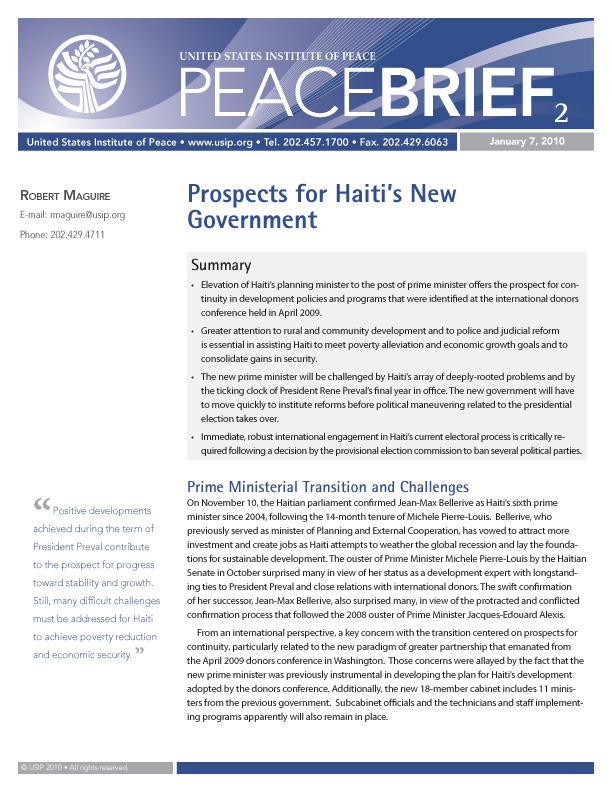Prospects for Haiti’s New Government
As the impoverished country prepares for presidential and parliamentary elections, a new USIP report examines how to best ensure Haiti can continue its progress and development amid political transition.

Summary
- Elevation of Haiti’s planning minister to the post of prime minister offers the prospect for continuity in development policies and programs that were identified at the international donors conference held in April 2009.
- Greater attention to rural and community development and to police and judicial reform is essential in assisting Haiti to meet poverty alleviation and economic growth goals and to consolidate gains in security.
- The new prime minister will be challenged by Haiti’s array of deeply-rooted problems and by the ticking clock of President Rene Preval’s final year in office. The new government will have to move quickly to institute reforms before political maneuvering related to the presidential election takes over.
- Immediate, robust international engagement in Haiti’s current electoral process is critically required following a decision by the provisional election commission to ban several political parties.
About This Brief
This report is based on a December 10 panel presentation that was co-sponsored by the USIP Haiti Working Group and the Inter-American Dialogue to discuss opportunities and constraints facing Haiti’s new government. The panel consisted of Alix Cantave, associate director of the William Monroe Trotter Institute, University of Massachusetts, Boston; Daniel Erikson, senior associate for U.S. policy and director of Caribbean programs at the Inter-American Dialogue; Nathalie Liautaud, senior program manager for Caribbean programs at the Pan American Development Foundation; and, Mark Schneider, senior vice president of the International Crisis Group. Dr. Robert Maguire, associate professor at Trinity Washington University and chairman of USIP’s Haiti Working Group, served as moderator.


